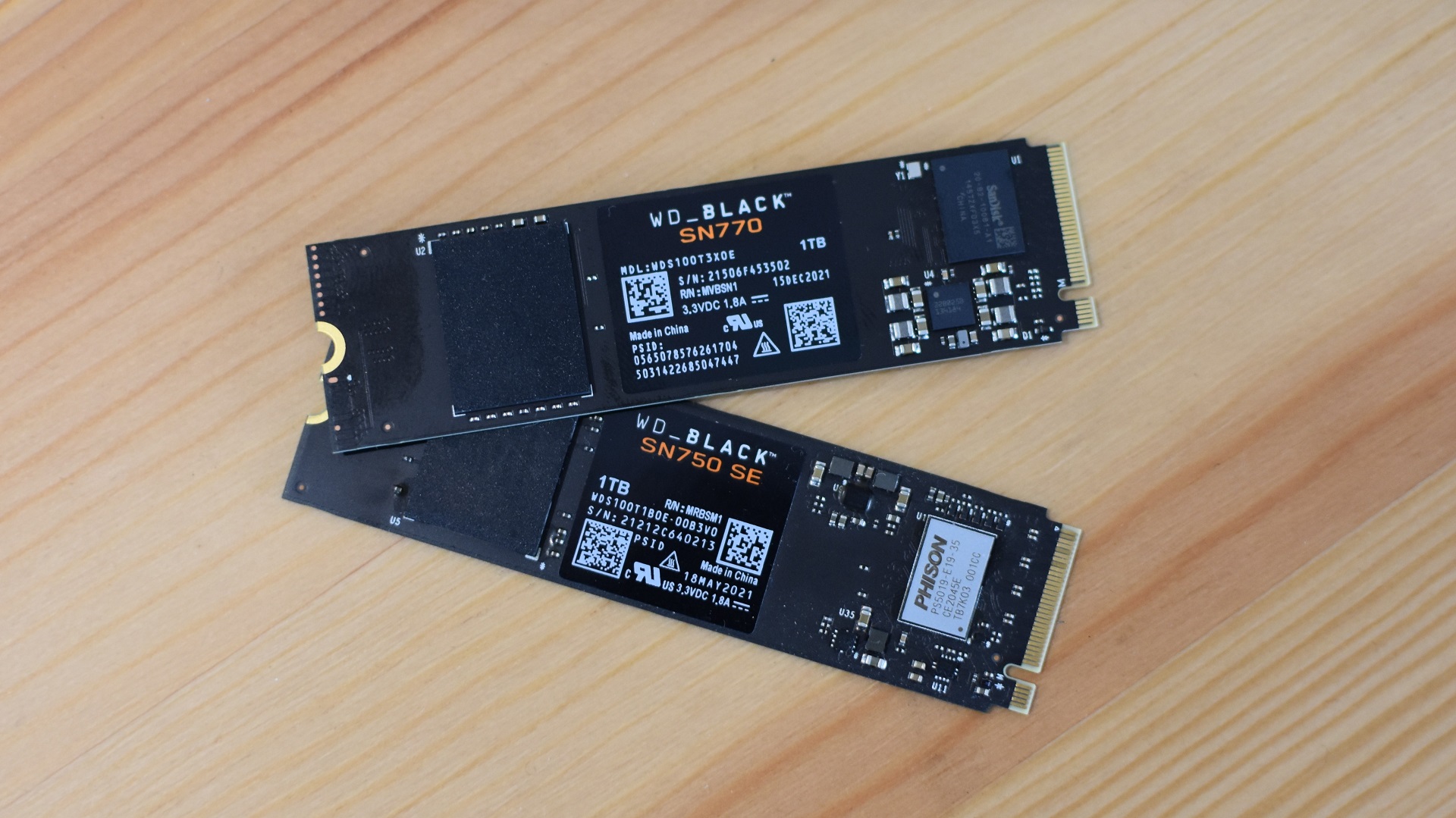All fine so far - not every little shard of PCIe 4.0 storage needs to be an ambitious pace merchant like WD’s own Black SN850, nor a relatively entry-level drive like the Black SN750 SE. However, while the Black SN770 can deliver on in-game performance, its overall performance and surprisingly high pricing leaves it stuck awkwardly between those two other WD offerings. And given they’re two of the best SSDs you can buy right now, that’s not a very comfortable place to be. Still, let’s start with the good part. The Black SN770 can be blazingly fast in the right conditions, including when loading games. Shadow of the Tomb Raider’s Cozumel mission loaded from the Black SN770 in a scant 9.39 seconds, a full second faster than the Black SN750 SE and even a couple of blinks faster than the Black SN850. It also posted an excellent write speed result, 3352MB/s, in CrystalDiskMark’s 8 queue/8 thread random benchmark. That’s faster than both of its WD stablemates as well as the Samsung 980 Pro, another higher-end PCIe 4.0 SSD. Its 236.6MB/s result in the AS SSD 4K write test is also one of the highest I’ve got on record. Good write speeds have their uses, especially when copying files, and you’d probably be doing a lot of that when installing a new SSD. Unfortunately, the Black SN770’s read speeds aren’t on the same level. Back in the CrystalDiskMark test, its read speed result of 2516MB/s isn’t bad per se, but it’s slower than the Black SN850’s 2614.5MB/s and the 2695MB/s of the Kingston Fury Renegade. And it seemed to struggle with AS SSD’s random 4K read test, only managing 54.2MB/s. That’s actually one of the lowest we’ve seen from a PCIe 4.0 drive, with even some PCIe 3.0 SSDs like the Kingston KC2500 and Samsung 970 Pro outpacing it, not to mention the seemingly lower-spec Black SN750 SE. Not that you’d really see sequential read/write speeds in ordinary use, but the Black SN770’s results in the AS SSD 1GB sequential tests turned out on the lower side too. With a 3924.9MB/s read speed and a 3995.8MB/s write speed, it’s faster than the Black SN750 SE, but the Black SN850 beats it by over 2000MB/s on reads and nearly 1200MB/s on writes. The thing is, these results wouldn’t be an issue in and of themselves. The Black SN770 may be inconsistent but more often than not, it is fast, and that Shadow of the Tomb Raider loading speed shows it can compete on gaming performance. The Black SN770 could have slotted in much more neatly between the Black SN750 SE and the Black SN850, and among PCIe 4.0 SSDs in general - all it would have taken was the right pricing. It does not have the right pricing. Not for the more capacious models anyway. The 1TB version is launching at £144 / $130, which here in Blighty is about £20 more than the 1TB Black SN850, £40 more than the 1TB Black SN750 SE and £14 more than the Samsung 980 Pro at their respective (and current) best prices. Then there’s the 2TB version of the Black SN770, which is around £80 more than the equivalent Black SN850 and 980 Pro SSDs. I know I said, literally yesterday, that it can be worth investing in pricey storage. And the Kingston Fury Renegade is certainly not cheaper than the Black SN770, but in return for your outlay, it does gets you some of the best read/write speeds on the market. The Black SN770 may have flashes of brilliance, but it’s not consistently speedy enough to justify over its own bigger brother, the Black SN850. There is one possible exception in the 250GB model, and not just because the Black SN850 lacks one of its own. In fact, 250GB variants of PCIe 4.0 drives aren’t all that common in general, and at £56 it’s only £5 more than the 250GB Black SN750 SE. It could therefore be a decent pick for anyone wanting PCIe 4.0 performance, but only has the budget for a small SSD + large HDD storage setup.
